Bagani: The Sound of Modern Filipino Nationalistic Song
Posted on 01 January 2021
By National Quincentennial Committee Secretariat
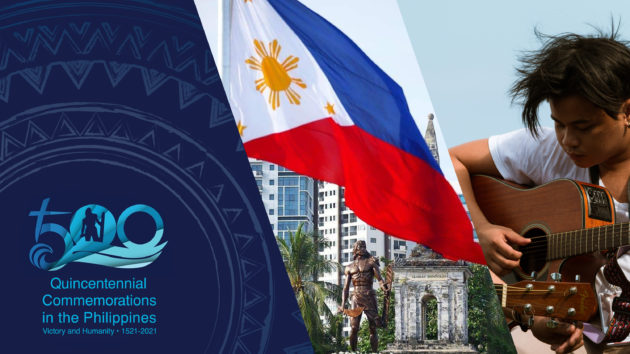
“Bagani”
2021 Quincentennial Commemorations in the Philippines Theme Song
Verse1:
Hubarin ang takot sa iyong damdamin,
Ipamalas ang angking galing.
Tumayong buong tapang harapin ang buhay,
Yakapin ang tagumpay.
Tulungan ang kapwa’t bigyang halaga,
Huwag hatakin nang pababa.
Isipin huwag sana ang sarili lang:
Pakisama’t bayanihan.
Pre Chorus:
Subukan nating isulong at ligawan
Ang magandang bukas
Ikaw at ako magkasama tayo,
Salubungin ang kinabukasan!
Chorus:
Bagani! Ating lahi!
Mandirigmang Filipino!
Dakila ang lahi ko!
Bayaning Filipino
Sa makabagong panahon!
Verse 2:
Halina’t hawakan ang aking kamay,
Sabay abutin natin ang tagumpay,
Patuloy lang tayo sa pagpapanday,
Tiwala sa Diyos ang sandata’t gabay.
Pre-Chorus:
Subukan nating isulong at ligawan
Ang magandang bukas
Ikaw at ako magkasama tayo,
Salubungin ang kinabukasan!
Chorus:
Bagani! Ating lahi!
Mandirigmang Filipino!
Dakila ang lahi ko!
Bayaning Filipino sa makabagong…
Bagani! Ating lahi!
Mandirigmang Filipino!
Dakila ang lahi ko!
Bayaning Filipino
Sa makabagong Panahon!
Story
“Bagani” (Manobo word for ‘warrior’ and ‘leader’) is the theme song of the 2021 Quincentennial Commemorations in the Philippines (2021 QCP). It was adopted by the National Quincentennial Committee (NQC) during its 11th Regular Meeting on 21 November 2019 in Butuan City from nine official entries gathered across the country by PhilPop under the auspices of National Artist Ryan Cayabyab. The primary consideration of the committee in choosing a theme song was that it should capture the music preference of the young Filipino population (i.e., pop) yet respectful of the Filipino musical heritage.
The song celebrates the heritage of nobleness and compassion in a Filipino, driving him or her to do great things for his or her people and the world as always. The 2021 milestones are the 500 years of the Philippine part in the achievement of humanity in circumnavigating the world for the first time, the victory of our ancestors led by Lapulapu in the Battle of Mactan, and other related events in 1521.
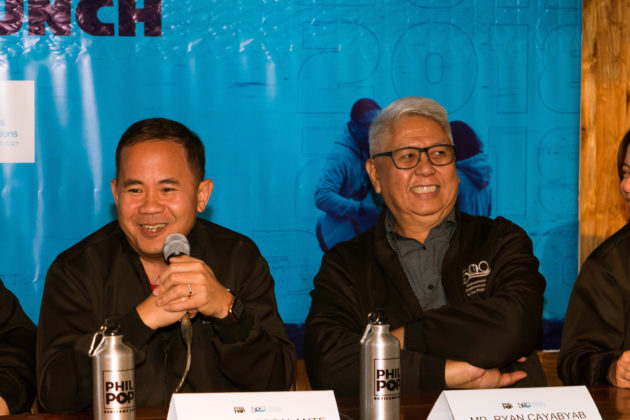
Development
Young OPM songwriter Roel Rostata wrote and composed “Bagani.” This was his entry in the South Luzon Leg of PhilPop Bootcamp in Talisay, Batangas on 28 May 2019. Joining Maestro Ryan Cayabyab in choosing “Bagani” out of thirty entries in this leg were OPM legends Noel Cabangon, Jungee Marcelo, Trina Belamide, and Jim Paredes. Joining also the said adjudicators was the young OPM singer-songwriter Lara Maigue and arranger Marlon Barnuevo. They also coached and workshopped the young artists in the bootcamp.
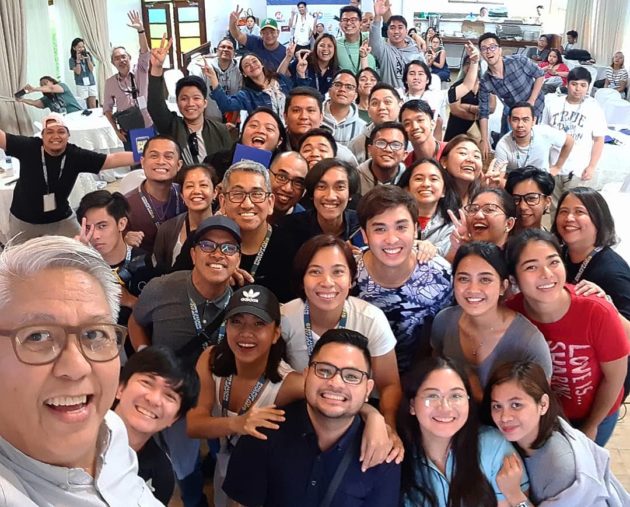
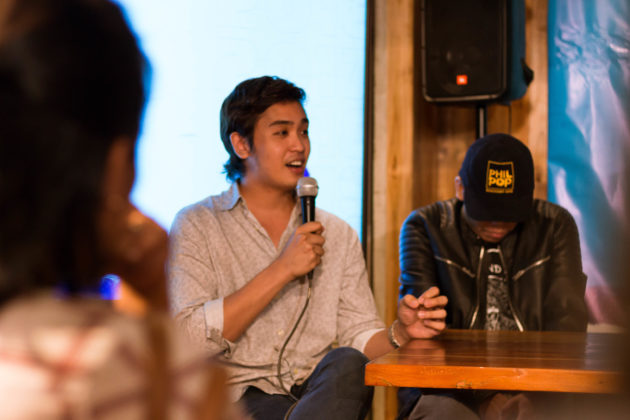
The National Commission for Culture and the Arts (NCCA) and the National Historical Commission of the Philippines (NHCP) funded the production of the theme song, as well as the eight other songs. Jungee Marcelo further enhanced the lyrics of Rostata and arranged the melody to its current form. The song was officially interpreted by Anthony Castillo and his a capella group, Pinopela.
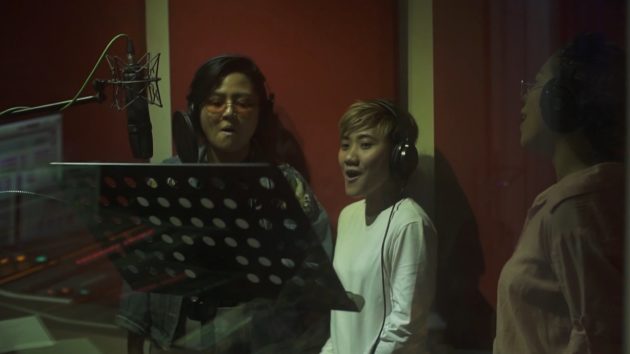
The public first heard the song on 14 December 2019 or the 500-day countdown to the 2021 QCP. Castillo’s version was presented in the countdown event at the National Museum of Natural History. Whereas, St. Gregory the Great Choir of Toril (solo by Jason Reyes) sung the song in the Davao countdown (video above). Cebu Philharmonic Orchestra performed the theme song in the Lapu-Lapu City countdown program and sung by Cebu’s World Championship of Performing Arts (WCOPA) medalists Vingenr Tan, Ronna Jenn Lofranco-Cañete, John Willace Tubalde, and Erneville Vinculado, accompanied by the Mandaue Children and Youth Chorus (video below). The orchesta arrangement was made by Joel Cruz and conducted by Maestro Jiovanni Tabada with the funding assistance from the Department of Foreign Affairs. In March 2020, the NQC approved the request of PTV 4 in using “Bagani” as a station ID.


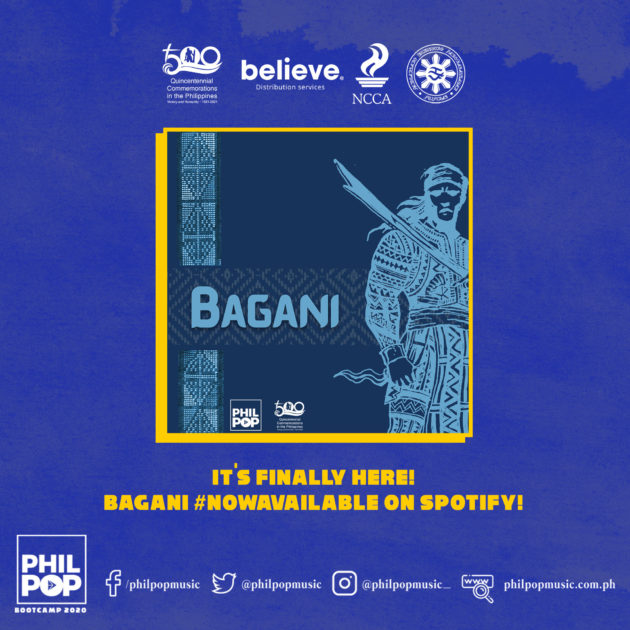
About the Title
The title “Bagani” was derived from a word in Manobo (a lumad or indigenous people in Mindanao) which means ‘warrior.’ In his documentation of the Manobo language in the book Exploración del territorio de Davao (Filipinas) (1891), Joaquín Rajal y Larré equated bagani as ‘feroz’ (fierce, ferocious), obviously pertaining to the character expected to a warrior. He also mentioned that he met a certain Manobo datu named Bitil who wore a headscarf of a bagani. This is not surprising because until now, the Manobos regard their community leader as bagani, thus, a leader is expected to defend his people and territory. Bagani is also present in the Aklanon (‘love of homeland, patriot’), Meranaw (‘vigor’), Mandaya (‘seasoned warrior-turned-community leader’), and Bagobo (‘brave,’ ‘warrior’) languages.
In the comprehensive Austronesian Comparative Dictionary of the University of Hawai’i edited by linguists Robert Blust and Stephen Trussel, there are a number of cognates to the word ‘bagani’ across the Austronesian space (the language family of the Filipino people and other Southeast Asia, Pacific, and Madagascar peoples). They ascertained *baRani as the proto-Austronesian origin of the cognates which generally means “brave, bold; dare to do.” Some of the cognates are bayani in Cebuano, Kapampangan, and Tagalog (‘brave’), berani in Malay (‘bravery; to dare; to venture’), wāni in Old Javanese (‘courage, bravery, valor, prowess’), bogoni in Mongondow (‘leader, commander, champion, hero, war chief [in former times], someone who dares to undertake something’), varane in Roviana, a language in the Solomon Islands (‘brave, bold’), and ma-vany in Malagasy, a language in Madagascar (‘contemptuous, audacious’). Balani of the Tausugs, likewise, also shares the same attributes of word *baRani.
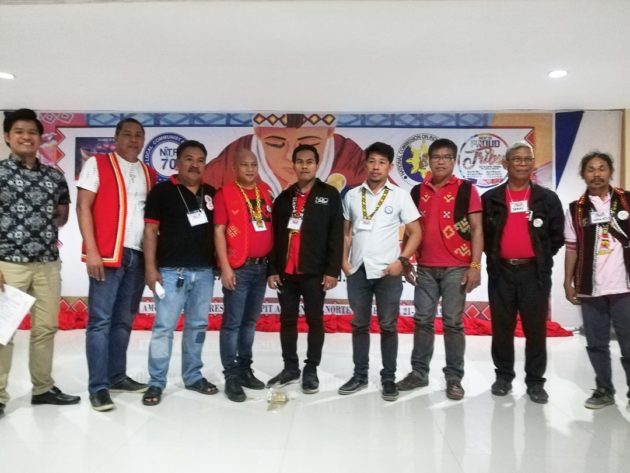
On 21 November 2019, the NHCP and the National Commission on Indigenous Peoples (NCIP) Region XIII secured the permission of various Manobo datus from Agusan del Norte, Agusan del Sur, and Surigao del Sur to use the word bagani as the title of the 2021 QCP theme song. The consultation was timed with the NCIP National Task Force to End Local Communist Armed Conflict (NTF – ELCAC) Regional Action Planning Workshop at Amontay Beach Resort, Nasipit, Agusan del Norte.
Versions
During the 1-year countdown to the 2021 QCP on 27 April 2020, Visual Hands Studio and the Philippine National Association of Sign Language Interpreters collaborated with the NQC in producing the Filipino Sign Language interpretation of “Bagani.”
The Lapu-Lapu City Government released its own Cebuano version of “Bagani.” It was translated by Dr. March Mandal of DepEd Lapu-Lapu City, with the assistance of Cebuano historian and archaeologist Jose Eleazar Bersales, Ph.D. and arranger Niño James Bañares. Tubalde, who also sung the official Filipino lyrics during the 500-day countdown in Lapu-Lapu City, sung the version. It was officially performed during the reopening of the city’s tourism industry following the COVID-19 pandemic in October 2020. Also in the same occassion, the city government made the official Filipino lyrics as its new tourism ID echoing the revitalization of the domestic tourism for the quincentennial.
Rizal Technological University (RTY) made its own a capella rendition of “Bagani.” It was the university’s tribute to the front liners in this time of pandemic. The version was arranged by Ian Gabriel Corpuz and sung by RTU’s Himig Rizalia.
How to Download
Everyone is invited to submit to [email protected] his or her own rendition of “Bagani.” If you want the theme song be featured in your academic or cultural events, you are free to do so provided prior consent is made. Kindly hover your mouse on the word links to download the mp3 file, the minus one, the orchestra version without lyrics (perfect for formal functions), and the lyric video. It is also available on Spotify. Complete playlist (i.e., mp3, lyric video) can be accessed here for free.
How to Attribute
While the public use and performance of “Bagani” and the eight other playlist is encouraged, commercial use is subject to approval of NQC and negotiation with PhilPop. For attribution, copy and paste below:
“Bagani”
Theme song of the 2021 Quincentennial Commemorations in the Philippines
Written and Composed by Roel Rostata
Arranged by Jungee Marcelo
Sung by Anthony Castillo and Pinopela
Produced by the National Commission for Culture and the Arts and National Historical Commission of the Philippines
Published by PhilPop, 2019

